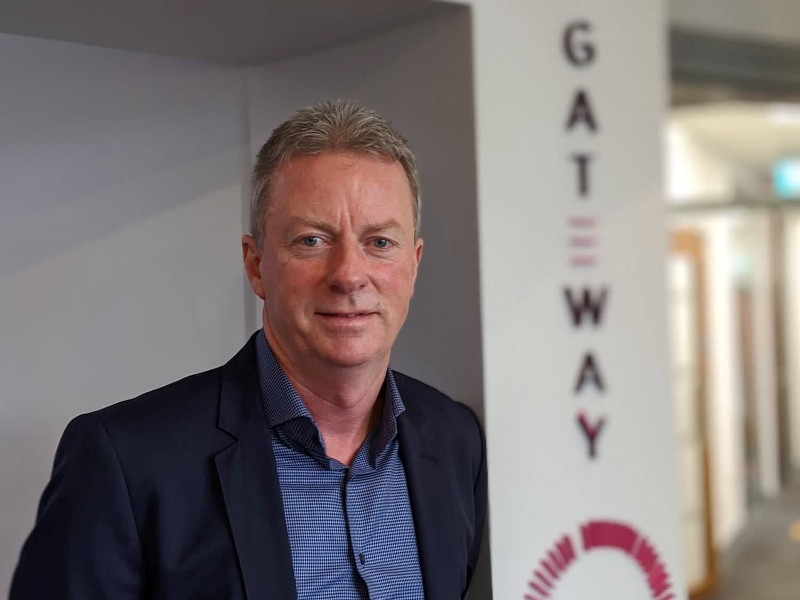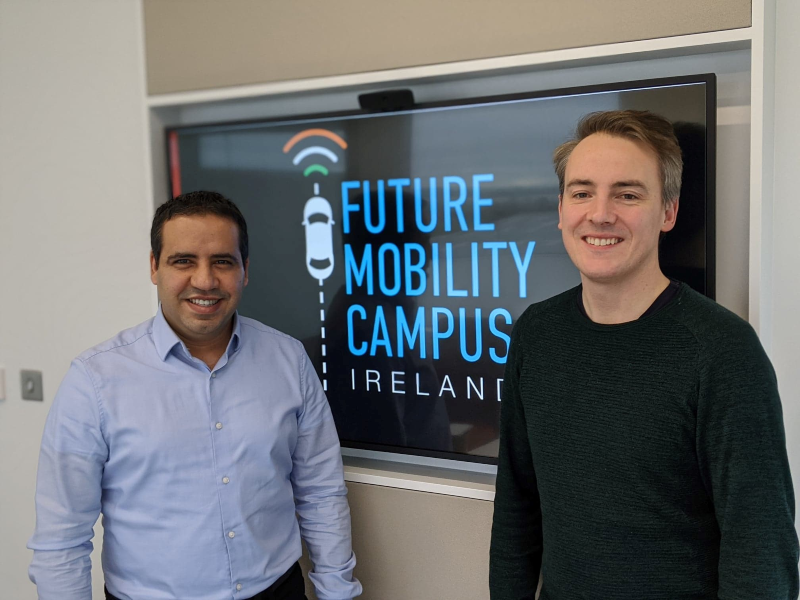Shannon-based Future Mobility Campus Ireland is stimulating international investment and job creation as it drives the autonomous future of transport.
€5.5m has been invested in the Future Mobility Campus Ireland in Shannon which is the country’s first full-scale development centre and test-bed for mobility technologies.
It is envisaged the campus will consolidate Ireland’s reputation for leadership in connected, automated, electrified and shared mobility solutions.
“Our unique facility in Shannon is facilitating safe, cost-effective and sustainable transport of freight and people now and into the future”
The facility focuses on technology research and development spanning ground and air uses. Projects involving unmanned drones, electric vertical take-off and landing aircraft (eVTOL), Advanced Air Mobility (AAM), autonomous driving, micro-mobility, smart cities, and V2X vehicle communication systems are accommodated.
“We want Ireland to be at the cutting-edge of new technologies, and that means we must continually invest in research, testing new ideas, seeing what works and how it can be improved,” said Tánaiste Leo Varadkar, TD.
“Future mobility is a particularly important and interesting area, given our need to reduce our reliance on fossil fuels, while at the same time making our cities more livable. This is a particular challenge given our population is rising.
“I’m glad we’ve been able to provide over €5.5m to the development of this campus, including €185,000 in additional funding, announced just yesterday, under the Regional Enterprise Innovation Scoping Scheme.
Driving the future
Funded by the Department of Enterprise, Trade and Employment through Enterprise Ireland, and financial contributions from the local authorities of Clare County Council, Limerick City and County Council, the Western Development Commission and industry partners, the unique FMCI campus at Shannon has state-of-the-art facilities for aerospace and automotive research and development, including a recently opened Advanced Air Mobility Hub.
The facility supports a range of parties including large and small-scale enterprise, from individual researchers to multi-national corporations, start-ups and Government entities.
Partners consist of companies such as Jaguar Land Rover, Shannon Group, Cisco, Valeo, Seagate, Red Hat, Taoglas, Mergon, Exida, Analog Devices, General Motors, Pipiper, Collins Aerospace and Avtrain.
“Our unique facility in Shannon is facilitating safe, cost-effective and sustainable transport of freight and people now and into the future,” said Russell Vickers, CEO of FMCI.
“What we and our clients do here contributes to socio-economic development and technological advancement that has extensive business, public service and societal applications”.
Autonomous vehicle research
In June, a European consortium coordinated by FMCI was approved and funded by the EU to develop a ‘Digital Sky Demonstrator’ for aerial Unmanned Traffic Management (UTM) systems.
The ground-breaking new research was a major vote of confidence in Ireland’s resourcing of advanced air mobility development, and in the industry operators and expertise present locally, Russell Vickers says.
The UTM research project will also support modernisation of air traffic management in Europe, building an end-to-end ecosystem that supports safe operation of unmanned flights, to help both conventional and unmanned aircraft safely integrate operations.
In keeping with the Shannon facility’s rapid development, on Thursday this week FMCI was awarded a priming grant as part of the Regional Enterprise Innovation Scoping Scheme (REISS), to prepare for development
Enterprise Ireland CEO, Leo Clancy, said there are significant growth opportunities for Irish companies in emerging technologies that efficiently move people and goods domestically and internationally.
“A key focus for Enterprise Ireland is accelerating the development of innovation capability in Irish enterprise and driving job creation in the regions. This new state-of-the-art facility will provide a real boost to the Mid-West Region, delivering a key piece of infrastructure that will support Irish industry nationally in addressing the cutting-edge future mobility industry.
“We are proud to have supported this project through €5.5m funding under our Regional Enterprise Development Fund (REDF) and the Regional Enterprise Transition Scheme (RETS), enabling enterprise to develop unique products and services to compete in international markets.”
Acknowledging the tremendous achievement of establishing the FMCI state-of-the art mobility test-bed at Shannon, and welcoming the economic boost it represents for the region, CEO of Shannon Group, Mary Considine said: “I would like to congratulate Russell and his team on today’s launch. This incubation space, where future mobility technologies are being developed, is providing great opportunities for innovation in our region and nationally.
“Innovation is part of Shannon Group’s DNA, and we are also delighted to welcome the news this week that FMCI, partnering with Shannon Group, has been awarded funding under the REISS scheme to undertake a feasibility study on the continued development of the Advanced Air Mobility (AAM) research and innovation hub.
“Establishing a world-class, large-scale research and innovation hub for AAM on the Shannon Group campus will help foster a cluster of new industries within the region and beyond. We look forward to continuing to work with FMCI and seeing the opportunities these cutting-edge technologies can bring.”
Main image: Russell Vickers, CEO, FCMI, with Tánaiste Leo Varadkar, TD. Photo: Arthur Ellis





